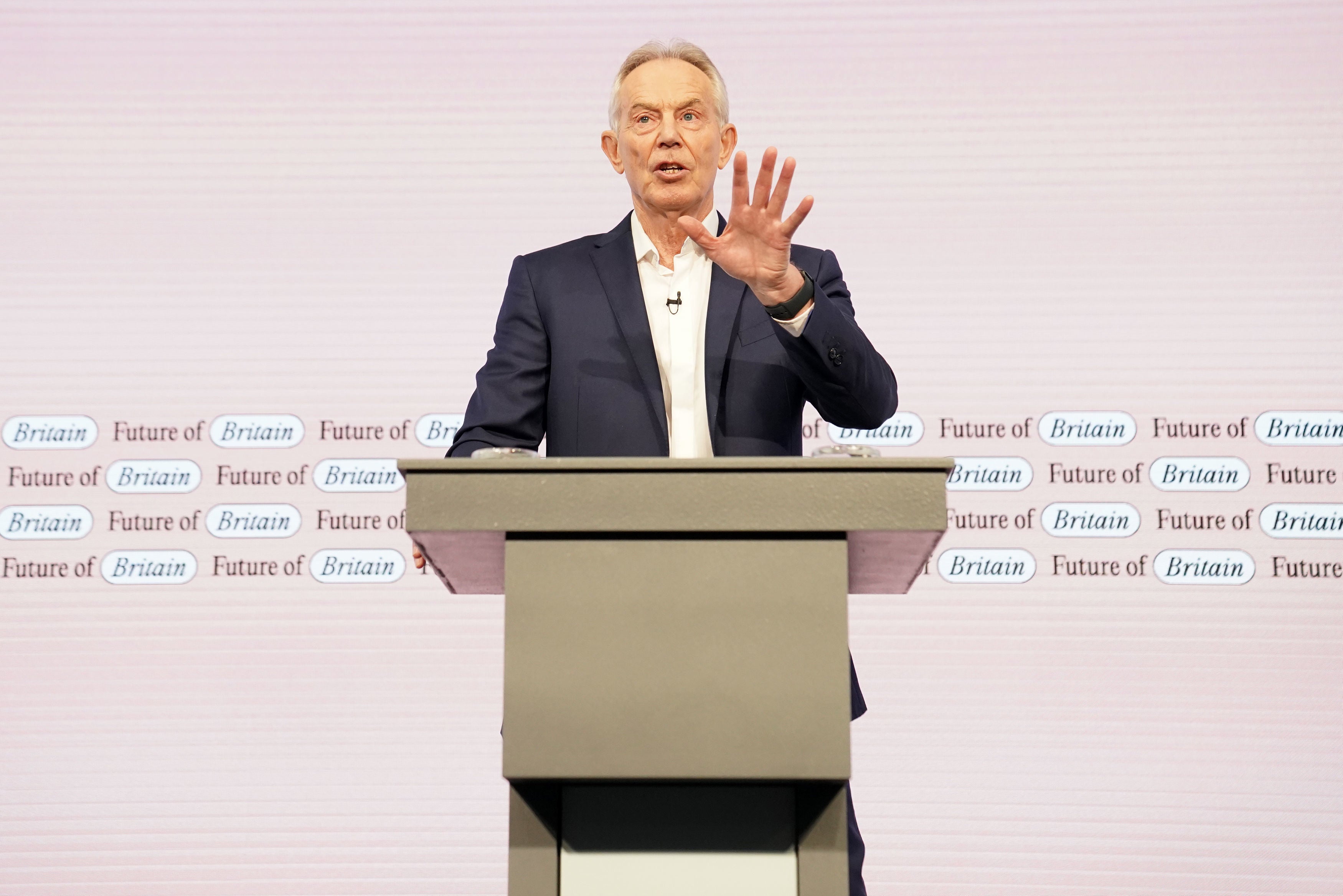‘Britain can’t stop the climate crisis’ – shocking stuff, but Tony Blair is right
The former PM’s take on Labour’s eco pledges was so heretical, writes John Rentoul, that Andrew Marr’s jaw dropped...


Andrew Marr was clearly taken aback. He observed to Tony Blair during their recent conversation that “climate change is a bigger issue than artificial intelligence”. This is, after all, nothing but a statement of the obvious, the cross-party consensus – that nothing is more important than the climate crisis.
Blair didn’t agree. His dissent was deft and typically phrased, appearing to agree with the assumptions of his interviewer, with a “but” inserted before taking the subject in a different direction: “Well, it’s the single biggest global challenge, right, and Britain should play its part in that. But its part frankly is going to be less to do with Britain’s emissions. I mean, one year’s rise in China’s emissions would outscore the whole of Britain’s emissions for a year.”
One year’s rise in China’s emissions did indeed once “outscore the whole of Britain’s emissions for a year”, in the year to June 2021, although there is some evidence that Chinese emissions may have stabilised since.
Marr bristled. China, he said, “is used here as a reason for not doing very much”. He was thinking of people such as David Frost, Boris Johnson’s Brexit negotiator, and the late Nigel Lawson, who do not deny that climate change is happening as a result of human activity, but who say that it would be self-defeating to end Britain’s contribution to global warming – at great cost to ourselves – while other countries continue to increase theirs.
Blair agreed that the growth in China’s emissions should not be used as an excuse for inaction, but then came another “but”: “But even in climate change, AI and technology’s going to be key. There’s no answer to climate change without technology. And artificial intelligence will allow you to do things like radically shorten your planning timetable.”
This was not what Marr expected to hear. In his account of the interview, he commented, “Most people think climate change is a huge issue…”
But Blair was now in full heresy mode: “Don’t ask us to do a huge amount when frankly whatever we do in Britain is not really going to impact climate change. The number one issue today – and this is where Britain could play a part – is how do you finance the energy transition? Because, basically, the developed world’s emissions are going down, but the developing world’s are going up. These countries have got to grow, so how do you finance the transition? Secondly, how do you accelerate the technology?”
Those are more important questions than marginal decisions about Britain’s path to net zero carbon by 2050, which are likely to dominate the green debate between now and the election in this country.
As someone attuned to the thinking of the median voter, Blair probably believes that we are moving towards net zero at a speed near the limits of what the electorate will bear. Rachel Reeves, the shadow chancellor, has already abandoned – I mean remains totally committed to, but not just yet – Labour’s £28bn-a-year Green Prosperity Plan. We are now waiting for the Conservatives to put a price on Keir Starmer’s plan to decarbonise all electricity generation by 2030 for that pledge to be totally committed to, but not just yet.
I understand that Blair’s thinking is “not that far from Rishi’s view”, so if Starmer continues to chase votes as ruthlessly as he has been doing, the two main parties will converge by polling day on a position that could be described as “net zero provided it doesn’t cost too much”.
The danger of the Blair view, of course, is that the alternative to the relentless pursuit of “net zero in one country” is unlikely to be a relentless pursuit of financing technological solutions in the developing world. It is, precisely as Marr hinted, more likely to be doing nothing.
Britain ought still to play a leadership role in the world, which requires us to set an example at home – an argument made, long before the net zero target was set, by David Miliband when he was environment secretary in Blair’s last year as prime minister.
Leadership requires Britain to press on towards net zero, but it is the leadership that is important, rather than the precise targets and dates for cutting this country’s 2 per cent share of the world’s global warming emissions.
Note added 28 July 2023: Tony Blair’s office says that words omitted from the New Statesman’s version of the interview make clear that when Blair said “don’t ask us to do a huge amount”, he was describing other people’s views.
He said: “Most people, not everyone but I would say around 80 per cent, do not need convincing that climate change is a huge problem; I think their only issue is: we should do what we can, but don’t ask us to do a huge amount when frankly whatever we do in Britain is not really going to impact climate change.”
However, what he said unambiguously speaking for himself was that Britain’s part in dealing with climate change was “less to do with Britain’s emissions” and by implication more to do with engaging with China and financing the energy transition for developing countries.






Join our commenting forum
Join thought-provoking conversations, follow other Independent readers and see their replies
Comments